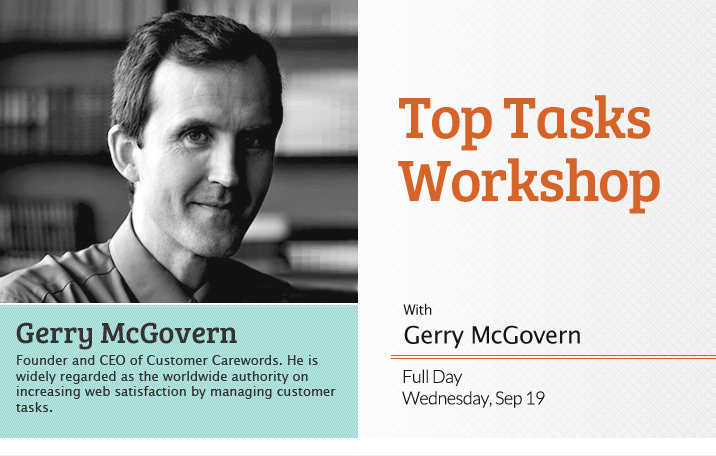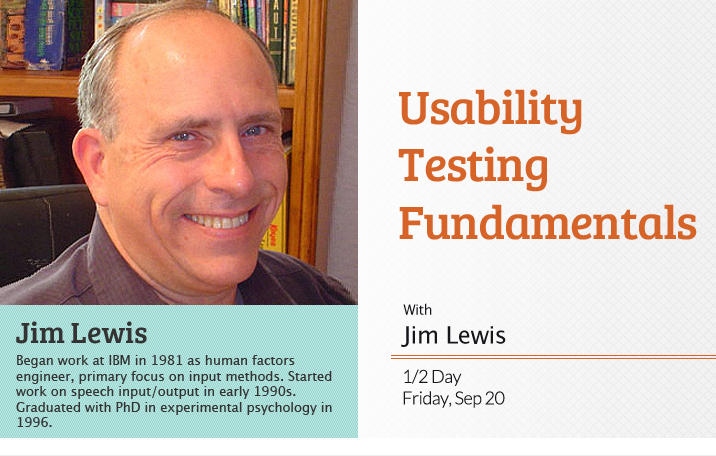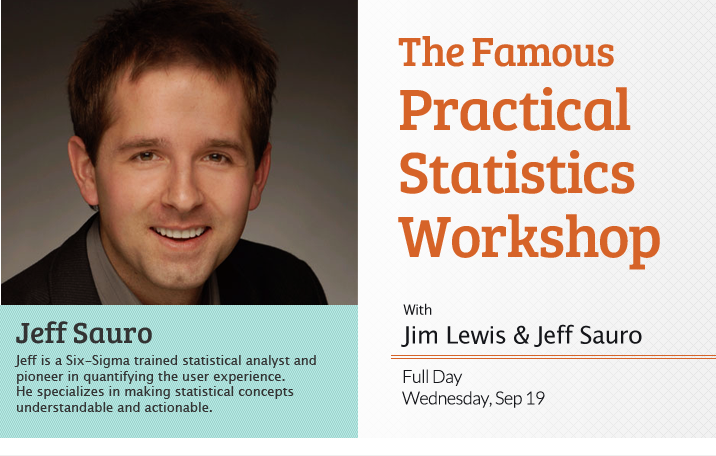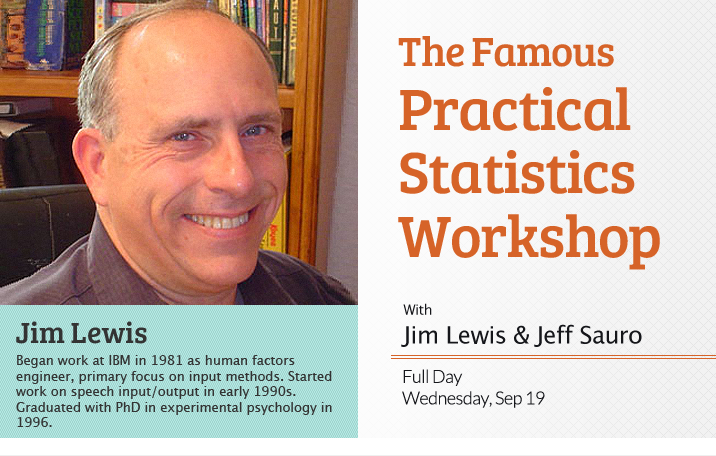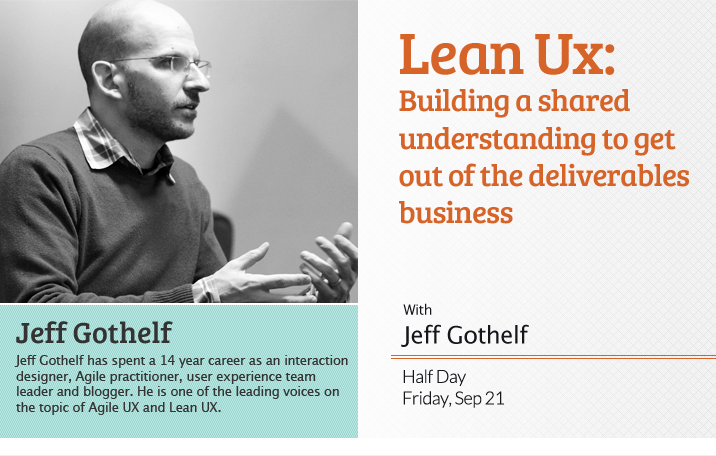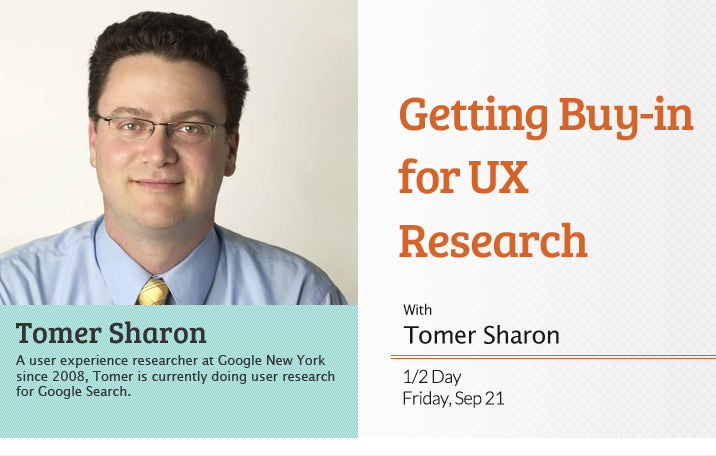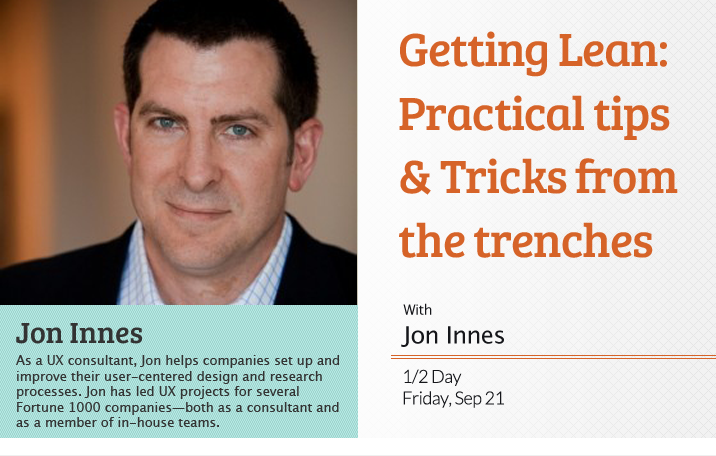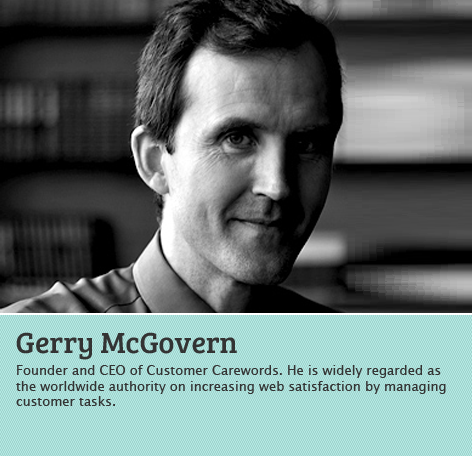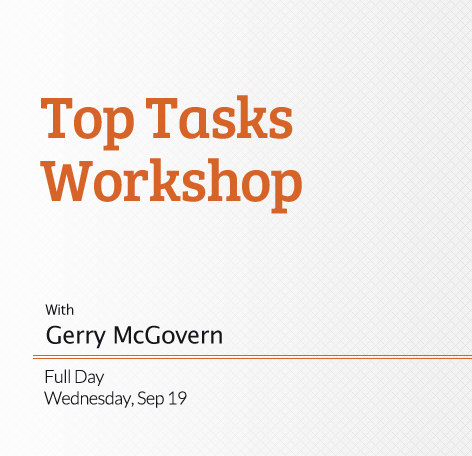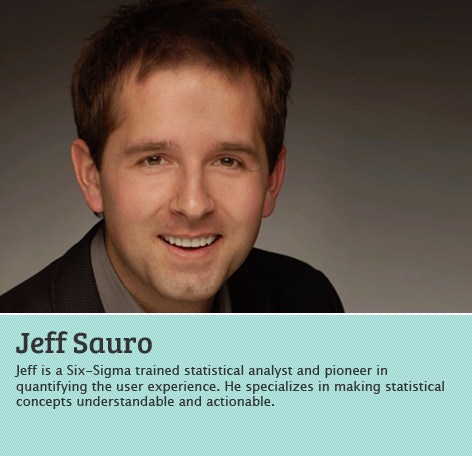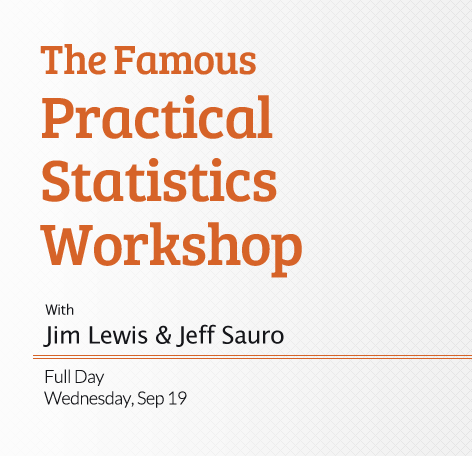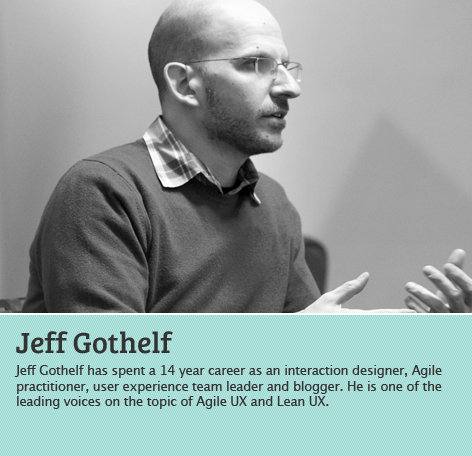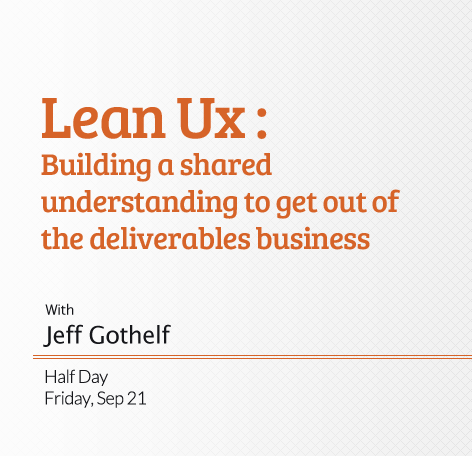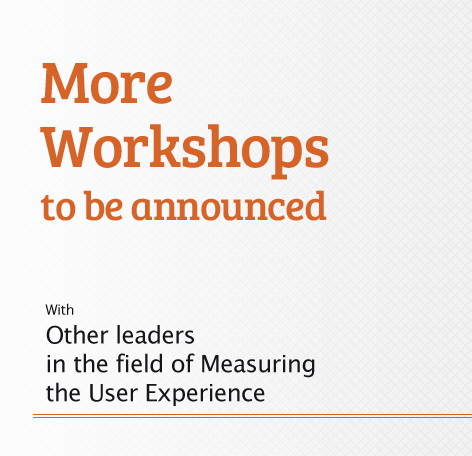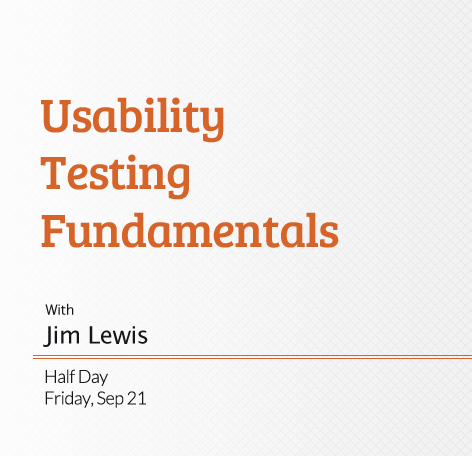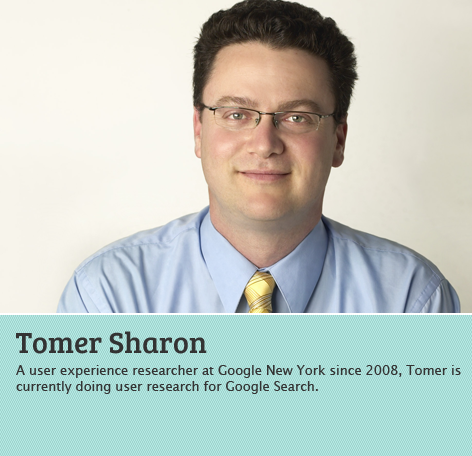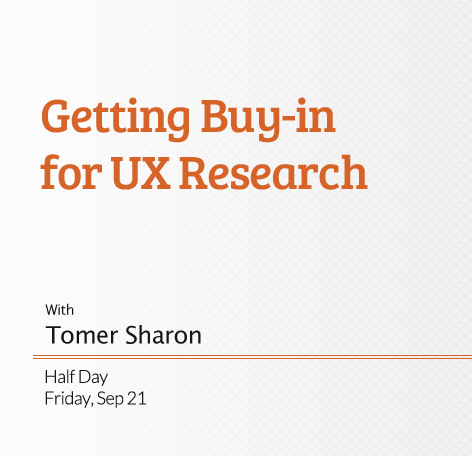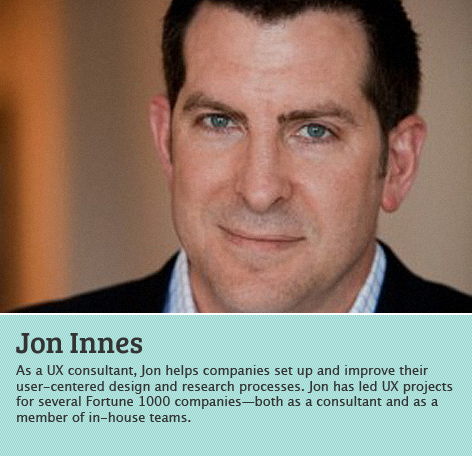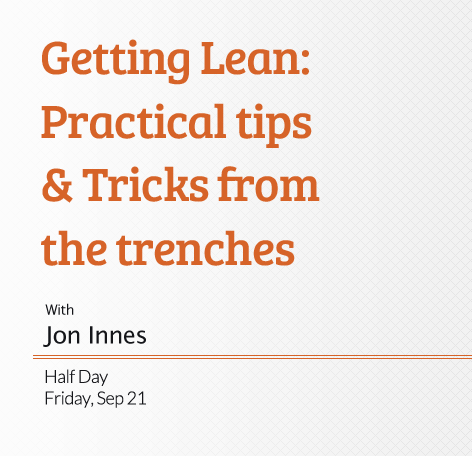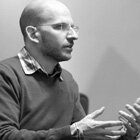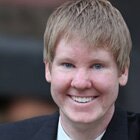WEDNESDAY Sep. 19th - 9:00 am to 5:00 pm
Pre Conference Workshops & Tutorials |
PRACTICAL STATISTICS FOR USER RESEARCH → Full Day Workshop
Jeff Sauro & Jim Lewis
|
IDENTIFYING CUSTOMERS TOP TASKS → Full Day Workshop
Gerry McGovern
|
LEAN ETHNOGRAPHY → Half Day AM Workshop
RJ Owen & Julia Houck-Whitaker
|
14:00h to 17:00h
DESIGNING AN EFFECTIVE INFORMATION ARCHITECTURE→ Half Day PM Workshop
Trent Mankelow
|
| THURSDAY Sep. 20th |
|
7:45h to 8:30h → Set Up
8:30h to 9:00h → Gather
9:00h to 9:10h → Capital 1 & 2 → Opening with Jeff Sauro and James Page
|
9:10h to 9:50h @ Capital 1 & 2
MANAGING THE TASK
Gerry McGovern → 40 min Talk
The culture of launch and leave—management based on projects—is a pre-Web management model that is simply not effective is a highly connected, rapidly changing world. We need a management model around continuous improvement and lean UX because that gives us flexibility and the ability to rapidly adapt and evolve. But how to get it? We must get teams to manage tasks not content or technology. And we must measure outcomes, not inputs.
|
9:50h to 10:20h @ Capital 1 & 2
Jeff Gothelf → 30 min Talk
|
10:20h to 10:50h @ Capital 1 & 2
NET PROMOTER AND UX
Erin Bradner → 30 min Talk
|
| :::: Morning Break :::: |
11:20h to 11:40h @ Capital 1 & 2
LEAN RESEARCH
Sabrina Mach → 20 min Talk
|
11:40h to 12:10h @ Capital 1 & 2
TEAMS, MEMES, AND METRICS: CONNECTING THE LEAN UX DOTS…
Jon Innes → 30 min Talk
|
12:10h to 12:40h @ Capital 1 & 2
WHAT I LEARNED ABOUT UX RESEARCH FROM LEAN STARTUP GURUS
Tomer Sharon → 30 min Talk
I have recently met the top two thought-leaders of the Lean Startup movement, Steve Blank and Eric Ries. We talked about Customer Development, lean entrepreneurship, UX research, and design. In this talk, I will share six insights gained during these conversations, which to my surprise can teach us UX practitioners a lot about our field. The talk will end with six lean recommendations about how we can get better buy-in for UX from the people we work with every day.
|
| :::: Lunch Break (On Your Own) :::: |
| Afternoon Parallel Sessions |
14:00h to 14:30h @ Capital 1 & 2
ESSENTIAL TOOLS TO UNDERSTAND AND IMPROVE THE USER EXPERIENCE
Bill Albert → 30 min Talk
|
14:00h to 14:30h @ Capital 1 & 2
GETTING LEAN WITH MOBILE
Charles Wiedenhoft → 30 min Talk
Smartphones and tablets now play a leading role in how we access the Internet. Successful design strategies take into consideration unique device interaction styles, context of usage and technical constraints. This presentation will provide tips and best practices on creating mobile-friendly experiences. Attendees will learn how to determine mobile priorities through a lean, data-driven approach.
AREAS OF FOCUS:
- Smartphone and tablet trends
- Retail innovation through the mobile channel
- Determining mobile priorities with analytics
- Case study on mobile website optimization
- Mini-workshop on setting mobile strategy
|
14:30h to 15:00h @ Capital 1 & 2
BENCHMARKING THE USER EXPERIENCE
Kim Oslob & Alfonso de la Nuez → 30 min Talk
|
14:30h to 15:00h @ Capital 3
Eye Spy: How Eyetracking helps you 1) discover UX problems 2) think of solutions, and 3) persuade the THE MAN to actually implement changes
Michael Summers → 30 min Talk
With examples from PayPal, Walmart, PBS, NFL, Mattel, and Levi’s, Michael will demonstrate that although eyetracking (ET) can be a pain, it helps UX pros like no other method can. After this session you’ll realize that the way human visual systems navigate within a single page (or even a scroll), can be more important than how people move between pages. Come see the principles that govern visual discoverability of UI elements on full display in groan-worthy videos. If people don’t see it, they can’t act on it. Research done trackside at a NASCAR race, or in a mall, will challenge your assumptions about what is possible in terms of getting ET out of the lab.
|
15:00h to 15:30h @ Capital 1 & 2
ALIGNING BUSINESS GOALS WITH USER NEEDS
Timothy Whalin → 30 min Talk
As user experience practitioners, everyday we face the challenge of aligning business goals with user needs. Sometimes these align perfectly, but often one has to be sacrificed for the sake of the other. How do you satisfy both while making the business profitable and producing a beautiful user experience? During this talk, we'll discuss practical ways to make this possible and how to find harmony with the business and user needs.
|
15:00h to 15:30h @ Capital 3
AVOIDING PROCRASTINATION (THE LEAN UX WAY)
Trent Mankelow → 30 min Talk
|
| :::: Afternoon Break :::: |
16:00h to 16:30h @ Capital 1 & 2
HOW CISCO USES TPI TO DRIVE UX IMPROVEMENTS ON THE SUPPORT WEBSITE
Bill Skeet → 30 min Talk
|
16:00h to 16:30h @ Capital 3
THE LEAN UX DIET: How a Boulder UX/UI agency switched from waterfall to agile and lost a collective 100 pounds in the process.
Kevin Menzie → 30 min Talk
This talk will explore the evolution of an agency moving from a traditional waterfall approach to a lean/agile methodology around user experience strategy and user interface design. We’ll talk about what worked and what didn’t and how Lean UX has allowed us to grow, relieve stress, and, believe it or not, lose weight.
|
16:30h to 17:00h @ Capital 1 & 2
DESIGN ESSENTIALS FOR NON-DESIGNERS
RJ Owen & Michael Salamon → 30 min Talk
|
16:30h to 17:00h @ Capital 3
TOP USABILITY MISTAKES - Lessons learned from over 100,000 usability tests
Darrell Benatar → 30 min Talk
|
17:00h to 17:30h @ Capital 1 & 2
DEMYSTIFYING LEAN: Going to Gemba
Scott Leek → 30 min Talk
This presentation debunks many of the mythologies surrounding the philosohpies and methodologies of Lean. Starting with the fundamental premise that value is defined by the customer, the presentation reviews the principles of Lean in the context of the 21st century economy, and what this means to you and your organization. Connect your organization’s day-to-day activities with Lean concepts and “learn to see” in ways that fundamentally transform how you lead, manage, and work.
|
17:00h to 17:30h @ Capital 3
USABILITY OF HOSPITAL RATING SITES
Prof. Dr. Uwe Sander → 30 min Talk
|
17:30h to 18:00h @ Capital 1 & 2
FIRST IMPRESSIONS OF WEBSITE USABILITY
Jeff Sauro → 30 min Talk
|
FRIDAY Sep. 21st - 9:00 am to 5:00 pm
Post Conference Workshops and Tutorials |
LEAN UX: Building a shared understanding to get out of the deliverables business → Half Day AM Workshop
Jeff Gothelf
|
GETTING BUY-IN FOR UX RESEARCH → Half Day AM Workshop
Tomer Sharon
|
FUNDAMENTALS OF USABILITY TESTING → Half Day AM Workshop
Jim Lewis
|
14:00h to 17:00h
USER EXPERIENCE METRICS 101 → Half Day PM Workshop
Bill Albert
|
14:00h to 17:00h
MULTIVARIATE TESTING → Half Day PM Workshop
Scott Leek
|
14:00h to 17:00h
GETTING LEAN: Practical tips & tricks from the trenches → Half Day PM Workshop
Jon Innes
|



